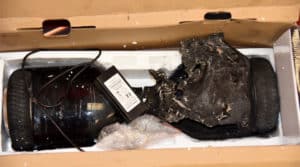Have you received a letter from Customs that looks like this http://twitpic.com/9j9rll ?
U.S. Customs and Border Protection is the agency responsible for protecting our borders. Accordingly, Customs officials at seaports, airports, and other border crossings all over the U.S. have the authority to examine, detain, and/or seize merchandise entering or exiting the country. More often than not, importers and exporters are surprised and intimidated when they find out that the government has intervened in their business. As a result, it is best to provide my readers some basic knowledge in an effort to appease any distress from Customs intervention.
Customs officials have a laundry list of “red flags” when targeting merchandise; they are looking for drugs, non-compliance with the Food and Drug Administration, counterfeit goods, and currency among many others. When Customs decides to detain a particular shipment the merchandise is transferred to a Centralized Examination Station where officials sort through and intensely examine the contents of the shipment. During the detention Customs must provide an explanation for the detention (see previous post for more detail). It is important to note that Customs explanation for the detention may have been provided under the advisement of another federal agency – as Customs is the “enforcer” for all other federal agencies relating to the import/export of products. Here is an example: Customs detained a shipment of T-shirts from Canada due to the failure to provide documentation that the importer has the authority to utilize a logo that is a registered trademark.
If Customs find a violation, they will seize it and transfer it from the Centralized Examination Station to an official warehouse. Throughout this process the importer is charged storage fees which must be paid if Customs agrees to release the goods. Seizures are handles by a department in Customs known as Fines, Penalties, and Forfeitures (FP&F). An FP&F paralegal reviews the case and issues a seizure notice to the alleged violator. The seizure notice will give information regarding the identity of the merchandise, the location of the seizure, and citations to legal authorities. Generally, the alleged violator is given options 1) abandon the goods; 2) file a petition with customs within 30 days of the issuance date on seizure notice; 3) file an offer in compromise (this option is beneficial in specific circumstances – best to speak with an attorney first to confirm whether an offer is the right strategy); or 4) take the matter directly to court for litigation (you need to fill out the seized asset claim form and post a cost bond equal to 10% of the value of the seized merchandise, or $5,000, whichever is lower).
At this time it is highly recommended to contact a Customs attorney regarding your best options and strategy moving forward. If an attorney is hired, he/she would notify Customs that the alleged violator is being represented by counsel. Thereafter, generally, the attorney would make what is called a Freedom of Information Act Request (FOIA). This formal request is sent in order to gain access to records that customs has regarding the alleged violation.
If the petition option is chosen, the alleged violator is given an opportunity to explain to customs why the goods should be released. It is important to hire an attorney who knows the policies, procedures, and practices that customs has in place in order to convince customs to release your goods. Thereafter, customs will render a decision on the case and either grant or deny the petition. If denied, the alleged violator is given an opportunity to file a supplemental petition to which must state additional information not before provided to customs. Alternatively, the alleged violator can choose to file an offer in compromise whereby one can make an attempt to negotiate with customs by offering a monetary sum to settle the matter and release the goods.
As discussed, there are various options offered to the alleged violator under the law. It is best to consult with an attorney experienced in these matters to explain these options as they relate to a particular set of facts. TIME IS OF THE ESSENCE!
Resource Information
For more information about this blog post, please contact Abady Law Firm, P.C. and speak with our customs attorney at (800) 549-5099. Also visit www.customsesq.com to chat with a customs lawyer — who has insight into the Notice of Seizure — about your company’s import situation and to schedule a consultation. To chat with us, click the bottom right corner tab of our homepage.
NOTICE OF SEIZURE AND INFORMATION TO CLAIMANTS
airportAppleAtlantaattorneybaltimorebeatsbluetoothbostonbuffaloCAFRAcbpcbp seized moneycell phonesChicagoclevelandcurrencycurrency seizureCustoms Attorney: Notice of Seizure and Information to Claimants form AFCustoms SeizureCustoms'dallasDetroitdivxETLexporthdmiHoustonimportintertekJFKlawyerlong beachLos AngelesLouis VuittonMiamiminneapolismoneyNewarknikeNogalesnotice of seizureoffer in compromisepetitionrefurbished cell phonesrolexSamsungSan DiegoseattletrademarkULUnderwriters Laboratories


